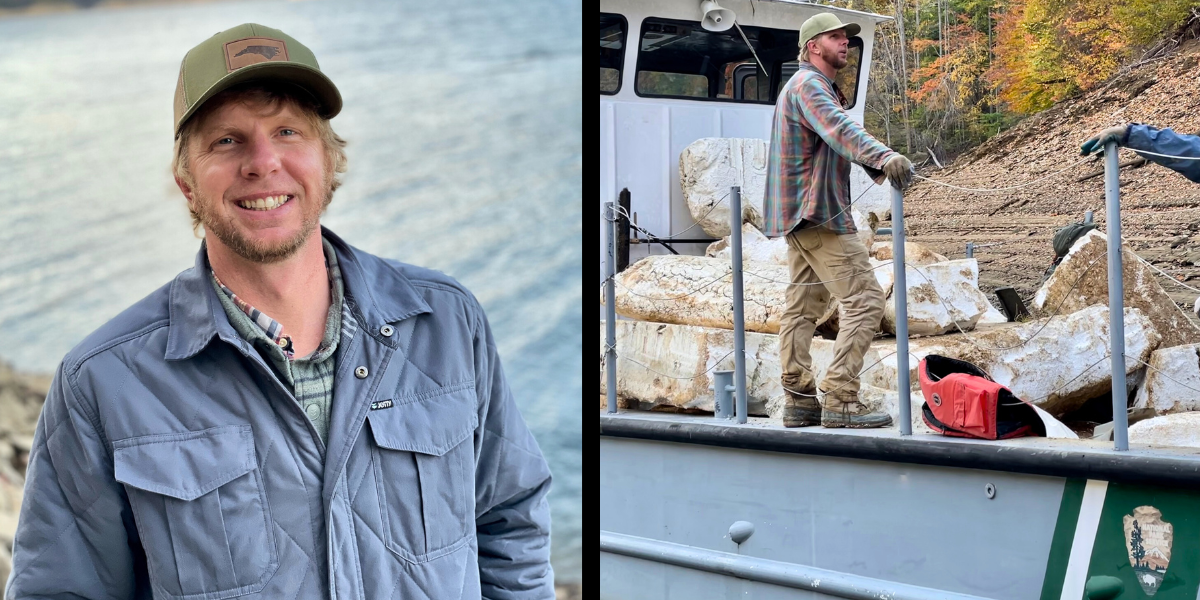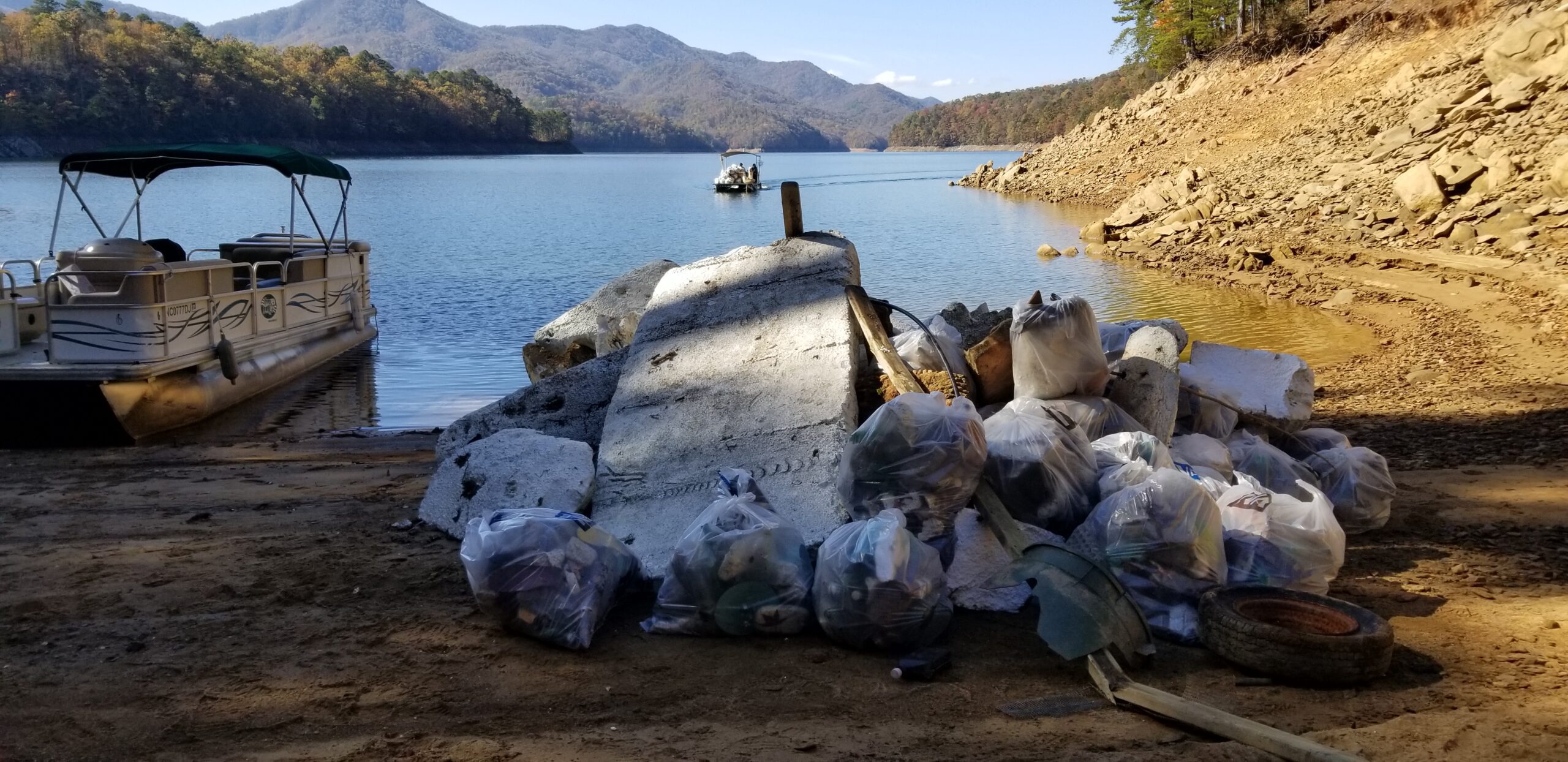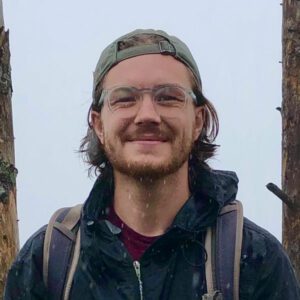“Why Not Me?” An Interview with Governor’s Conservation Award Recipient and Public Lands Conservationist Brandon Jones

In September, alongside NCWF’s 59th Annual Governor’s Conservation Achievement Awards, we are celebrating North Carolina public lands.
NCWF has a rich history of advocating for the preservation and accessibility of public lands. It has played a crucial role in protecting national wildlife refuges, state parks, and gamelands in North Carolina, safeguarding these areas from degradation and commercial interests. NCWF’s commitment to these public lands is integral to its wildlife conservation efforts and its mission to provide inclusive recreational opportunities around natural resources.
Public lands offer spaces to connect with natural history, engage in outdoor activities like hunting, fishing, and camping, and to appreciate the tranquility and natural beauty of the nation. These lands also serve as the foundation for the outdoor economy and contribute significantly to North Carolina’s robust travel and tourism sector. Encompassing various types such as national parks, forests, seashores, and wildlife refuges, public lands form a vital part of America’s identity, accommodating people from diverse backgrounds and fostering a sense of welcome and inclusivity.
But – while these public lands are collectively owned by all individuals and communities within the state – these lands need people who care enough to devote time and energy towards their protection and conservation.

Fontana Lakeshore Trash Cleanup haul
Brandon Jones, the Public Lands Conservationist of the Year at this year’s Governor’s Conservation Achievement Awards, is one such individual who has stepped up to the plate for North Carolina public lands.
Brandon launched a successful cleanup effort for Lake Fontana in western North Carolina, removing over 200,000 pounds of trash from the lake and the Great Smoky Mountains National Park shoreline. Through partnerships with organizations like the North Carolina Wildlife Federation and Mainspring Conservation Trust, the initiative has made a significant impact and inspired others to take ownership of the cleanup, making it the most extensive cleanup on national park lands.
We connected with Brandon to ask him a few questions about his experience as a public lands conservationist, and how others can work for the protection of these crucial North Carolina resources.
- Q. How did you become interested in public lands conservation?
Brandon: I didn’t grow up in a family of environmentalists, I don’t have a formal education or background in conservation at all, actually. Honestly, I’m just a normal guy who got frustrated seeing all the trash in this otherwise pristine area, and didn’t see anybody else doing anything about it. Both as a resident and someone trying to run a business in Fontana, it was embarrassing. It’s one thing to see trash on a busy city street, but to see as much garbage as they’ve got at the city dump tucked away in just one of the coves on this rural, scenic lake in the mountains… I don’t care who you are or what your values are, that’s just upsetting. Something had to be done.
- Q. Why did you decide to start up the Fontana Lakeshore Trash Cleanup?
Brandon: Since I didn’t see anyone else doing anything about the massive trash issue here, I figured… Why not me? The idea came about at sunset while sitting on a dock, looking out over the water and chatting with some friends. We were all lamenting how disappointing the trash situation was, and didn’t understand why some of the big-name entities that are supposed to steward this lake and the surrounding lands weren’t doing anything about it. But hey, nothing good was ever accomplished by folks sitting around complaining, right? One thing I’ve always prided myself on is my desire to be not only a dreamer, but a do-er. So I decided we could at least try and make a dent in it ourselves. I organized the first Fontana Lakeshore Trash Cleanup, and there were just 12 volunteers that showed up. More than anything, it was just just me and a few of my friends and neighbors. We only managed to cover maybe three miles of the 239 miles of shoreline on this lake. Even so, our 12 sets of hands removed over 22,000lbs of trash from those three miles that weekend. Upon seeing that weight total was when I immediately knew how big this thing could become. If 12 people could get 22,000lbs in such a small area, what could 25 people do next year? How much of this lake could we clean? What about with 50 people!? And so the Fontana Lakeshore Cleanup was born.
- Q. Has the Fontana Lakeshore Trash Cleanup been successful? How have you seen it – and the community involved – evolve and grow through it?
Brandon: After that first year, the cleanup grew substantially. We ultimately have wound up removing over 220,000lbs of trash out of the lake in the last five years. This past years’ cleanup drew over 100 volunteers. One thing that has been cool to see is how many folks are starting to volunteer that have never even been on this lake before. It made sense, in a way, for those of us who live here or spend a substantial amount of time here to pitch in, but to see total strangers coming from surrounding areas just to be part of an event like this that doesn’t benefit them personally in any way… It is so inspiring. It’s also awesome to see how people from all walks of life, with varying political belief systems, ages, socioeconomic statuses, etc. come together to work hard and accomplish something for the greater good. In this day and age where it can feel like folks are so divided, it’s a beautiful thing to see something as simple as picking up trash can still bring all kinds of people together.
- Q. What species are you hoping to serve/protect as a public lands conservationist, and through the work that you have done at Lake Fontana?
Brandon: One species may not be any more or less worth protecting than another, but the fish in general are of particular concern to me both inherently and, admittedly, a bit selfishly (as a fisherman). Oftentimes, the dinner I am bringing home to my family comes out of this lake. And the idea that most of the trash here is slowly breaking down into microplastics that the fish are ingesting, and therefore that WE are ingesting… It’s concerning. Beyond that, it’s upsetting to see one of the last lakes around that is still pristine and relatively untouched by development also be so degraded. Given how crowded and dirty most lakes are these days, you’d think that the people on and around Lake Fontana would want to keep it as beautiful as it’s always been for as long as possible. Even though that is clearly not everybody’s mindset, it’s still encouraging to see at the cleanups how many people DO care and do hope to preserve this scenic gem for future generations.
- Q. What would you say to anyone interested in starting up a public lands conservation endeavor like you have? Someone who might be interested in mobilizing their community to benefit wildlife and habitat?
Brandon: Just get started. Shoot, we only had 12 people at the first cleanup. But we got started anyways, and one piece at a time, year by year, the trash totals grew into the hundreds of thousands and we’re now making a hugely noticeable difference. The funding will come as the momentum grows, but ya gotta get the ball rolling. Don’t worry about making your first event a huge “success.” Just get started.
- Q. In your opinion, how can people help support conservation and public lands conservation, in North Carolina and beyond?
Brandon: Imagine if we all just picked up one piece of trash a day. While participating in national, state, or city-wide trash cleanups and conservation events is great, starting small right in your little corner of the world might just be the most accessible and sustainable route for many people. For example, my fiance and I adopted a highway mile on the road right by the lake where we live, and we walk through and pick up the trash on it just a few times a year. It’s a small time commitment on our end and the county D.O.T. provides us with all the equipment we need. According to NCDOT, there are a little over 80,000 miles of maintained roads in North Carolina. So often, trash from roadways is a huge culprit for the litter that ends up in our waterways. With millions of residents in this state, imagine if even a small fraction of us adopted just 1 mile. We could clean up this entire state. The adopt-a-highway program is in every county, and it’s a great way for folks to get started making a difference right in the neighborhood they live in.
Oh yeah… And simply don’t litter. That would help too!
- Q. Any final takeaways?
Brandon: I would just like to thank everyone that supported this cause. We have a long way to go, but we have come so far. Those who have attended these cleanups or supported in any way ought to be proud of themselves. We’re leaving this corner of the world better than we found it, and that’s all we could hope to do. Here’s to the 2023 Fontana Lakeshore Cleanup, November 3-5. If you might be interested in attending or contributing, feel free to reach out to me at [email protected] for more info. Let’s do this thang!

– Written by Bates Whitaker, NCWF Communications & Marketing Manager
